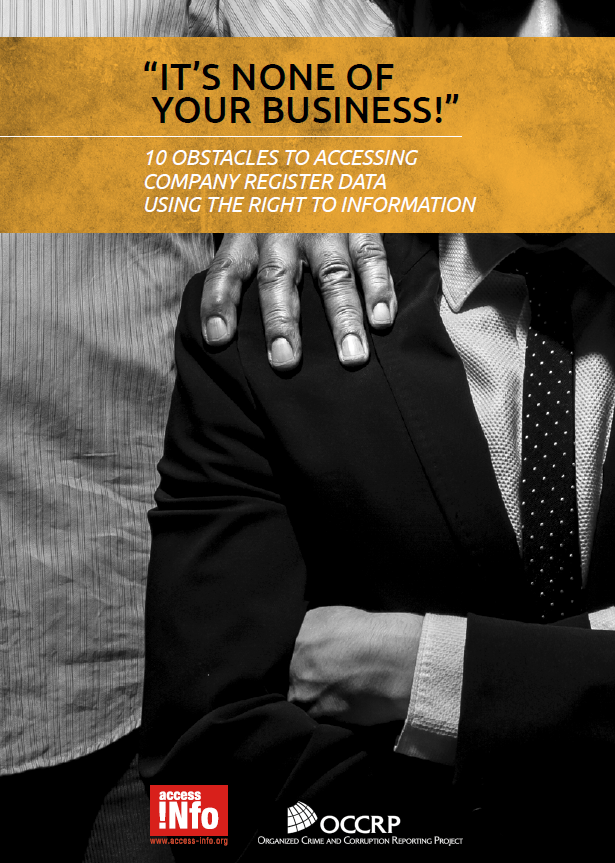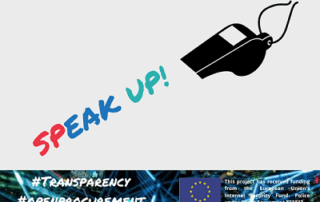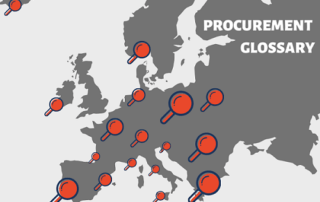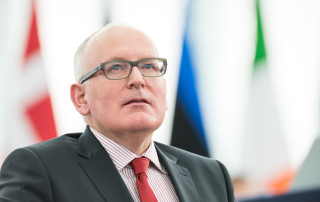ACCESSING COMPANY REGISTERS
USING THE RIGHT TO KNOW
ONLY 1 OUT OF 32 EUROPEAN COUNTRIES ALLOWS FREE, PUBLIC
ACCESS TO ITS ENTIRE COMPANY REGISTER
European governments, by putting these obstacles to accessing company register data, are complicit in blocking investigative journalists in their work uncovering criminal activities, money laundering, and tax evasion.
Experts’ views
Why is it important for the public to have full, free access to company registers?
Users perspective on access to company registers:
The Findings
The map below summarises the results of the request process, which took almost two years to complete.
To find out more about what happened in each country, click on the map or use the country-by-country list below:
Map Key
In red…Refused access to info
In orange…Process still ongoing
In green…Gave full access to info
In blue…Administrative silence
OPEN COMPANY REGISTERS LATEST NEWS
Tenders Guru project: Guide to EU Whistleblower Protection Directive
Madrid, 22 January 2020- Leading transparency and anti-corruption organisations from across Europe have today released a Guide to the EU Whistleblower Protection Directive, which came into force on 16 December 2019 and must be transposed by EU Member States within two years. The Guide explains how the EU Whistleblower Protection Directive is structured and the minimum standards of protection that
Tenders Guru project: Public Procurement Glossary
Madrid, 15 January 2020- Leading transparency and anti-corruption organisations from across Europe have today released the Public Procurement Glossary, a guide on the terminology used in public procurement processes, with the goal of making it easier for civil society and journalists to monitor for corruption and wrongdoing in local procurement processes.
Tenders Guru project: reducing corruption risks with data
Madrid, 20 December 2019- A major pan-European project looking into how to reduce corruption in public procurement, including at the local level, is currently underway in four European countries, and is producing it is first results which can be found on the Tenders.Guru website.
Pushing for beneficial ownership transparency in Europe
[Article first published by the UNCAC Coalition Blog] Andreas Pavlou, RTI Campaigner and Researcher Madrid, 11 April 2017 - Earlier this year, the European Parliament’s Economic and Monetary Affairs and Civil Liberties committees voted to strengthen beneficial ownership transparency rules across the European Union as part of the current revision to the 4th EU Anti-Money Laundering Directive.
European Civil Society Organisations Urge EU to Publish Anti-Corruption Reports
Madrid, 22 March 2017 – Access Info Europe, Transparency International EU, and 56 other civil society organisations have urged the Commission in an open letter not to abandon its leadership role in the fight against corruption, after it dropped the publication of long-awaited anti-corruption reports of all 28 Member States earlier this year. The letter, also being sent directly to
The risks of transparency in times of rising populism
[Article first published by the UNCAC Coalition Blog] Helen Darbishire, Executive Director Madrid, 10 March 2017 - It’s not often that your own colleagues working on democracy issues actually question the wisdom of pressing for greater transparency, but this has happened to me a few times lately. Most recently, I’ve been asked about the wisdom of pursuing Access







